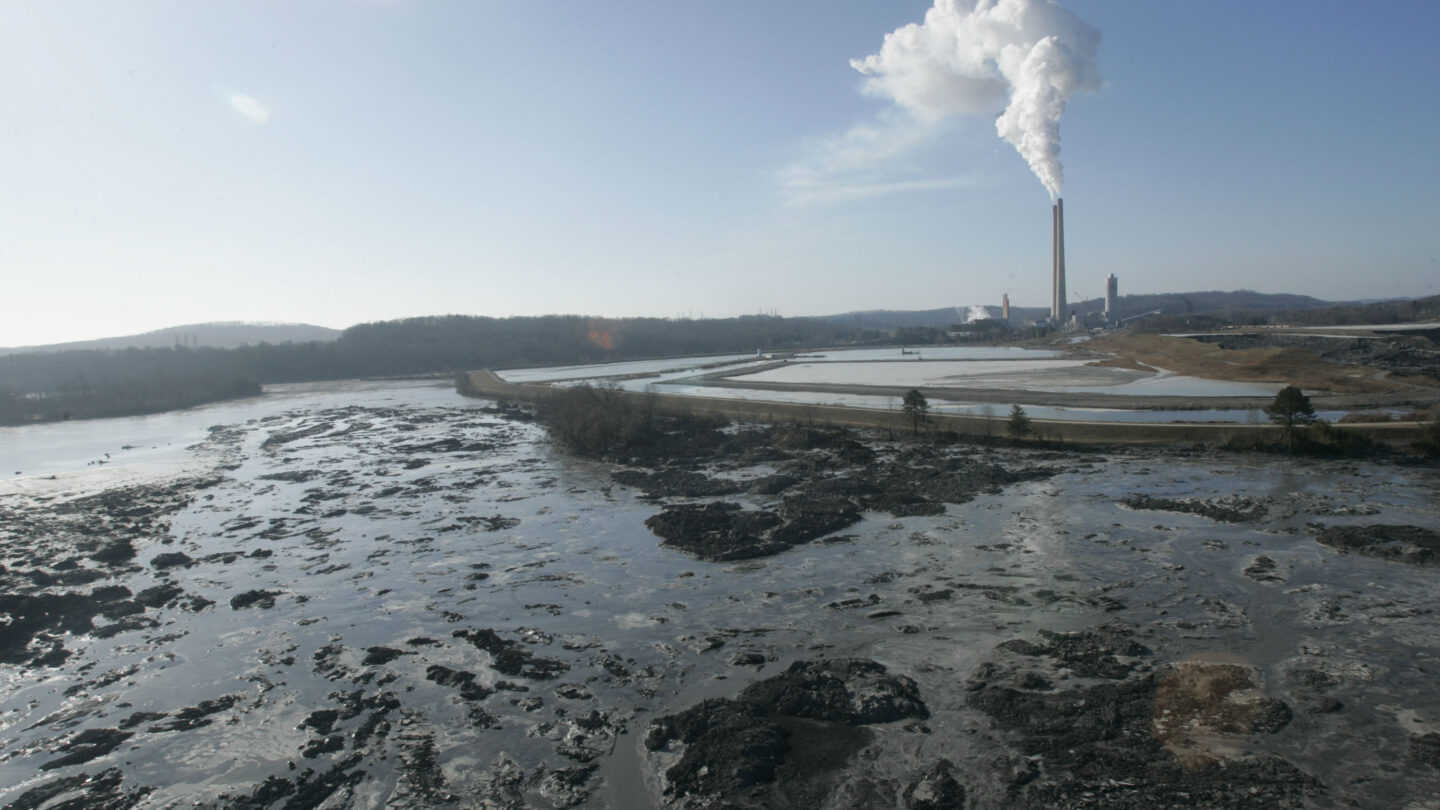This coverage is made possible through a partnership with WABE and Grist, a nonprofit, independent media organization dedicated to telling stories of climate solutions and a just future.
As federal regulators prepare to reject Alabama’s plan for storing toxic coal ash, Georgia activists are calling for the same in their state.
Coal ash is a byproduct of burning coal to make electricity. It contains dangerous toxins like mercury and cadmium that can seep into groundwater if the ash isn’t stored properly. There are millions of tons of it in states with coal-fired power plants, and following regulations rolled out several years ago, utilities and states are now addressing how to store it safely.
The U.S. Environmental Protection Agency has found that Alabama’s plan to store coal ash doesn’t comply with federal rules and is proposing to reject it.
At a public hearing this week, Altamaha Riverkeeper Fletcher Sams called the action in Alabama “encouraging” for advocates like him in Georgia.
“However, in my state, we need EPA’s help urgently,” he said.
Sams and others urged the federal agency to revisit the Georgia Environmental Protection Division’s permit program for coal ash. They said the state is allowing Georgia Power to store coal ash in contact with groundwater, where it could potentially make people sick.
EPA has previously approved the Georgia permit program and said in a statement that Georgia EPD “has not finalized any permits that allow an unlined surface impoundment to close with [coal ash] that will continue to be saturated by groundwater after the closure has been completed.”
But advocates dispute that claim.
Testing by environmental groups has shown groundwater contamination from old, unlined coal ash ponds. Residents of Juliette, near Plant Scherer in Middle Georgia, have sued Georgia Power, alleging coal ash contamination made them sick. And advocates at the hearing said a draft permit for closing a coal ash pond at Plant Hammond, near Rome, would allow groundwater contamination as well.
“[State regulators] continue to refuse to pull permits that are very clearly not in compliance with the federal regulations,” said Jesse Demonbreun-Chapman, executive director of the Coosa River Basin Initiative. “And so far, [EPD] appears set to continue to issue permits that would leave coal ash sitting and mixing with groundwater.”
In written statements, both Georgia EPD and Georgia Power pointed to EPA’s prior approval of the Georgia coal ash program. The utility said it’s “committed to closure plans that are protective of the environment and the communities we serve.”









